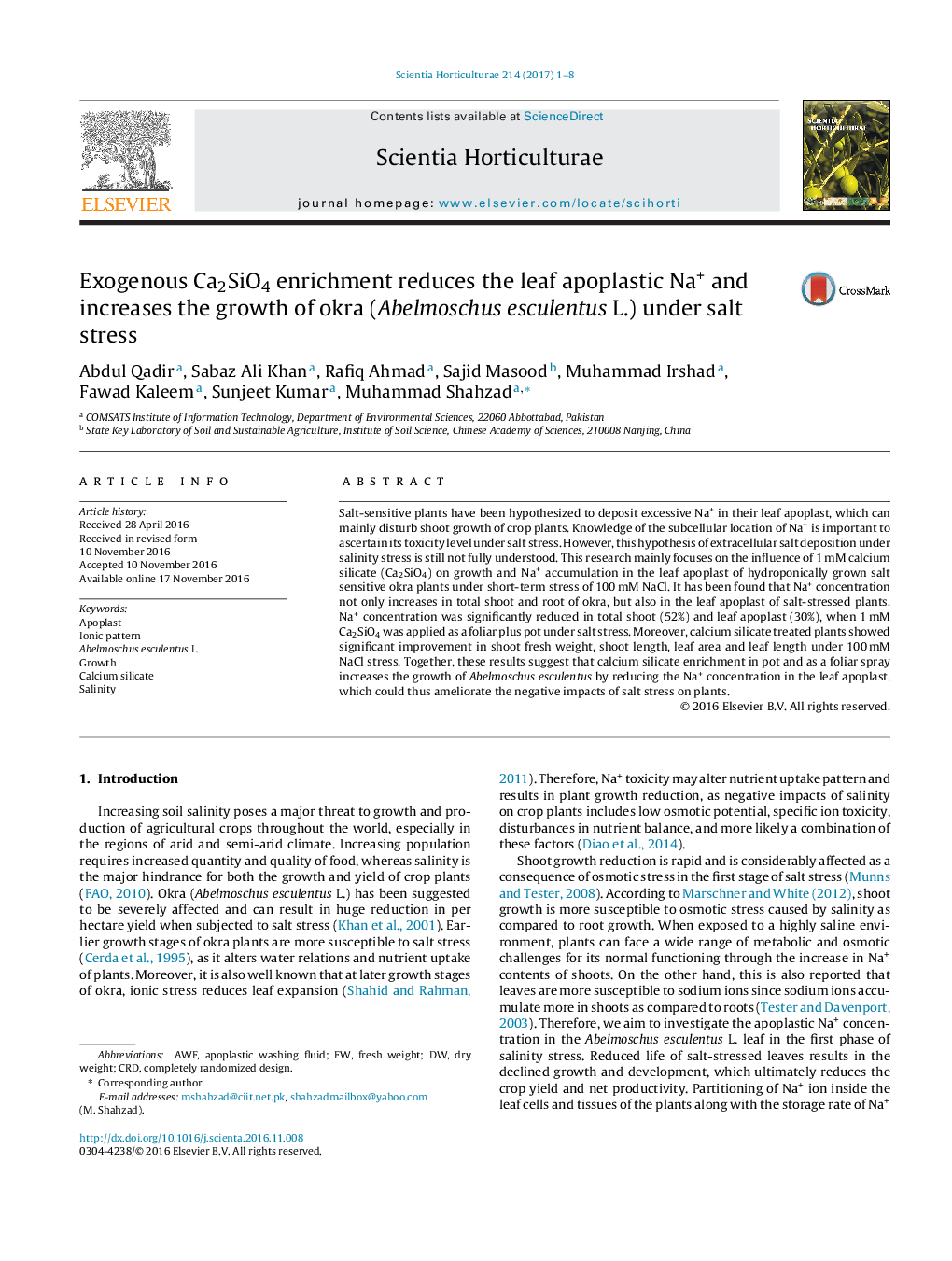| Article ID | Journal | Published Year | Pages | File Type |
|---|---|---|---|---|
| 5769786 | Scientia Horticulturae | 2017 | 8 Pages |
â¢Influence of exogenous calcium silicate on growth and Na+ accumulation in the leaf apoplast.â¢Calcium silicate can ameliorate the negative impacts of salt stress on okra plants.â¢Sodium accumulation in the leaf apoplast of okra under salt stress.
Salt-sensitive plants have been hypothesized to deposit excessive Na+ in their leaf apoplast, which can mainly disturb shoot growth of crop plants. Knowledge of the subcellular location of Na+ is important to ascertain its toxicity level under salt stress. However, this hypothesis of extracellular salt deposition under salinity stress is still not fully understood. This research mainly focuses on the influence of 1Â mM calcium silicate (Ca2SiO4) on growth and Na+ accumulation in the leaf apoplast of hydroponically grown salt sensitive okra plants under short-term stress of 100Â mM NaCl. It has been found that Na+ concentration not only increases in total shoot and root of okra, but also in the leaf apoplast of salt-stressed plants. Na+ concentration was significantly reduced in total shoot (52%) and leaf apoplast (30%), when 1Â mM Ca2SiO4 was applied as a foliar plus pot under salt stress. Moreover, calcium silicate treated plants showed significant improvement in shoot fresh weight, shoot length, leaf area and leaf length under 100Â mM NaCl stress. Together, these results suggest that calcium silicate enrichment in pot and as a foliar spray increases the growth of Abelmoschus esculentus by reducing the Na+ concentration in the leaf apoplast, which could thus ameliorate the negative impacts of salt stress on plants.
